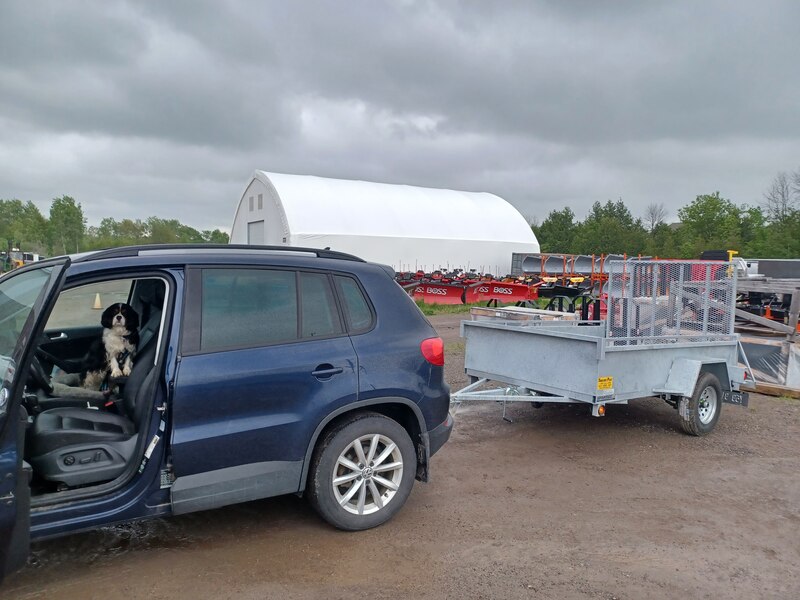Inside this edition of Natural Garden News
- Welcome to our new friends from the home show!
- Will the deer eat these plants?
- If you want a Grounded garden…
- Do you really need that many plants?
- My most important advice to the owners of new gardens
- Today’s recommended reading
- Today’s VIP (Very Important Plant)
- This week in the garden
- From the socials
I hope you enjoy the newsletter! If you have any questions or feedback, please reply to this email.
Simon Payn
Grounded
Email: hello@groundedgardens.ca
Web: groundedgardens.ca
Follow Grounded on the socials!
Welcome to our new friends from the Home Show!
|
|
It was wonderful to see some subscribers at the home show. And to meet so many new subscribers. Welcome!
I hope you enjoy the newsletter. You can download the guide to natural gardens from a link halfway down. And if you find the newsletter is not for you, just click the unsubscribe link at the bottom. (I’ll be sad but I’ll get over it.)
We have a winner of our native plant giveaway! Congratulations to Charmaine C of Kashagawigamog Lake! Your 20 plants will be on your doorstep soon.
|
Will the deer eat these plants?
At the home show last weekend when I was selling native plants, the #1 question (and #2 and #3) was: will the deer eat these?
(Also: what lies will you tell about the deer not eating these?)
Fair questions! We have, you may have noticed, lots of deer around here. And they like to eat plants.
Here’s my answer: there is no such thing as a totally deer-resistant plant. But these native plants have a better chance of being nibble-free than most.
Deer can be capricious beasts. I heard stories of a Hydrangea that lasted many years before – suddenly and apparently without reason – being eaten to the ground. Or Hostas that survived when all the neighbours’ plants had gone to the great salad bar in the sky.
Here is the definition of a native plant I like to use: a plant that has co-evolved with other plants and animals in its area. In other words, it’s a plant that fits nicely into the mosaic of ecology, where everything is in balance.
This co-evolution has led to some plants being less attractive to deer – it’s how they survive. And those that are attractive to deer have the ability to bounce back. So unless the deer population is out of whack (and, to be fair, it might be if deer are fed and wolves are scarce), everything works out just fine.
For the anxious owner of a natural garden, “just fine” means that deer will nibble some plants, but not all of them. They’re less likely to nibble native plants than non-native plants (which haven’t done the whole co-evolution thing).
And finally, as we plant so many plants because we’re mimicking a natural environment (instead of a few specimen exotics), if the deer eat a few, we don’t notice.
By and large, it all works out just fine.
Simon
If you want a Grounded garden…
We have only one more installation booked for this spring. The next ones will be in the fall or spring 2025.
However, if you’re interested in working with us, don’t wait until then. We use the summer to prepare your site and to work on plant lists and designs.
We’re happy to come out and look at your site for no charge and with no obligation. If we’re not a fit, we’ll depart as friends. Just click the button below.
|
|
|
|
Do you really need that many plants?
Homeowners (and some gardeners) are sometimes shocked by how many plants I order. But there’s a good reason for that. Read more.
|
|
|
|
My most important advice to the owners of new gardens
When I install a new garden, I provide a handbook, explaining the plants in the garden and how to manage the garden in the future. Of all the advice in the handbook, this is the most important. Read more.
|

